In today's digital age, content marketing has become a crucial element for companies aiming to stand out in an increasingly competitive and digitized market. It involves creating, distributing, and promoting valuable and relevant content to attract, engage, and retain a specific audience. In this article, we will delve into the significance of content marketing in a company's digital strategy and how it can drive growth and success online.

What is Content Marketing?
Content marketing is a digital marketing strategy that focuses on the creation, distribution and promotion of valuable and relevant content to attract, engage and retain a specific audience. Rather than simply promoting products or services, content marketing seeks to provide useful, educational or entertaining information that responds to consumers' needs, interests and challenges.
By focusing on creating content that is useful, educational, or entertaining, companies can connect with consumers on a deeper level and address their needs, interests, and challenges. This approach goes beyond traditional marketing tactics by offering something of value to the audience, which in turn builds trust and loyalty.
Ultimately, content marketing is about creating a meaningful connection with your target audience and establishing your brand as a reliable source of information and expertise in your industry.
Characteristics of Content Marketing:
-
Valuable and Relevant: Content created in a content marketing strategy must offer value to the audience. This means addressing topics that are relevant to consumers' interests and needs and providing useful and practical information that helps them solve problems or make informed decisions.
-
Customer-Centric: Content marketing is based on thoroughly understanding the target audience and creating content that resonates with their interests, desires, and challenges. By understanding consumers' needs and preferences, companies can create more relevant and effective content that builds an emotional connection with the audience.
-
Multichannel: Content created in a content marketing strategy can be distributed through a variety of channels, including blogs, social media, email, videos, podcasts, infographics, and more. Diversifying channels allows companies to reach their audience at different touchpoints and increase their online reach.
-
Measurable and Analyzable: One of the advantages of content marketing is its ability to measure and analyze content performance. By using web analytics tools and social media metrics, companies can track the success of their content in terms of traffic, engagement, conversions, and more, allowing them to adjust and optimize their strategy based on the data obtained.
-
Continuous and Consistent: Content marketing is an ongoing effort that requires constant investment in the creation and distribution of quality content. Maintaining a consistent online presence and providing content regularly helps maintain engagement with the audience and build a long-term relationship with consumers.
In summary, content marketing is a powerful strategy to attract, engage, and retain a specific audience through the creation and distribution of valuable and relevant content. By focusing on delivering content that addresses the needs and desires of consumers, companies can establish their authority in the market, enhance their online visibility, and generate high-quality leads that drive long-term growth and success.
Why does every company need content marketing?
1. Attracting and Retaining Relevant Audiences
An effective content marketing strategy enables companies to reach their target audience in a more impactful and meaningful way. By creating content that addresses the needs, interests, and challenges of their audience, companies can capture the attention of potential customers and maintain engagement with their existing customer base.
Whether through blogs, videos, infographics, podcasts, or social media, providing relevant and valuable content can establish an emotional connection with the audience and foster long-term brand loyalty.
2. Establishing Authority and Credibility in the Market
Content marketing serves as a powerful tool for positioning oneself as an authority in a specific industry or market niche. By sharing unique knowledge, experiences, and perspectives through content, companies can showcase their expertise and solidify their reputation as thought leaders in their field.
This not only helps in building trust and credibility with the audience but also has the potential to influence purchasing decisions and create a positive perception of the brand among consumers.
3. Enhancing SEO and Boosting Online Visibility
High-quality content is crucial in online marketing for success in search engines. Well-executed content marketing can aid in improving organic search result rankings by providing relevant and optimized content for specific keywords.
Furthermore, top-notch content tends to attract more inbound links from other websites, which can enhance a company's domain authority and online visibility. By investing in robust content strategies, businesses can increase their organic traffic, generate quality leads, and boost online conversions.
4. Supporting the Customer Buying Cycle
Content marketing plays a pivotal role in all stages of the customer buying cycle, from awareness and consideration to decision-making and retention.
By crafting tailored content for each stage of the customer journey, companies can provide relevant and helpful information that guides consumers throughout the purchasing process. Whether through practical guides, customer testimonials, case studies, or product comparisons, well-designed content can influence purchasing decisions and foster long-term brand loyalty.
5. Encouraging Social Engagement and Interaction
Engaging and relevant content is more likely to be shared on social media platforms, amplifying a company's reach and increasing its online exposure.
By crafting content that resonates with the audience and encourages participation, companies can enhance their brand visibility, build an online community, and spark meaningful conversations with their audience.
Active engagement on social media platforms also enables companies to gather valuable feedback, gain a better understanding of their audience, and adjust their content strategies accordingly.
6. Generating Leads and Increasing Conversions
Content marketing is a powerful tool for generating high-quality leads and boosting online conversions. By providing valuable and relevant content, companies can attract potential customers and guide them through the sales funnel.
Whether through contact forms, calls to action (CTAs), or content downloads, content marketing can help companies capture leads and turn them into satisfied customers.
Conclusion
In summary, content marketing plays a pivotal role in a company's digital strategy by helping to attract and retain relevant audiences, establish authority in the market, improve SEO and increase online visibility, support the customer buying cycle, encourage social engagement and interaction, and generate leads and boost conversions. By investing in robust and customer-centric content strategies, companies can drive growth and online success, laying a strong foundation for the future.



